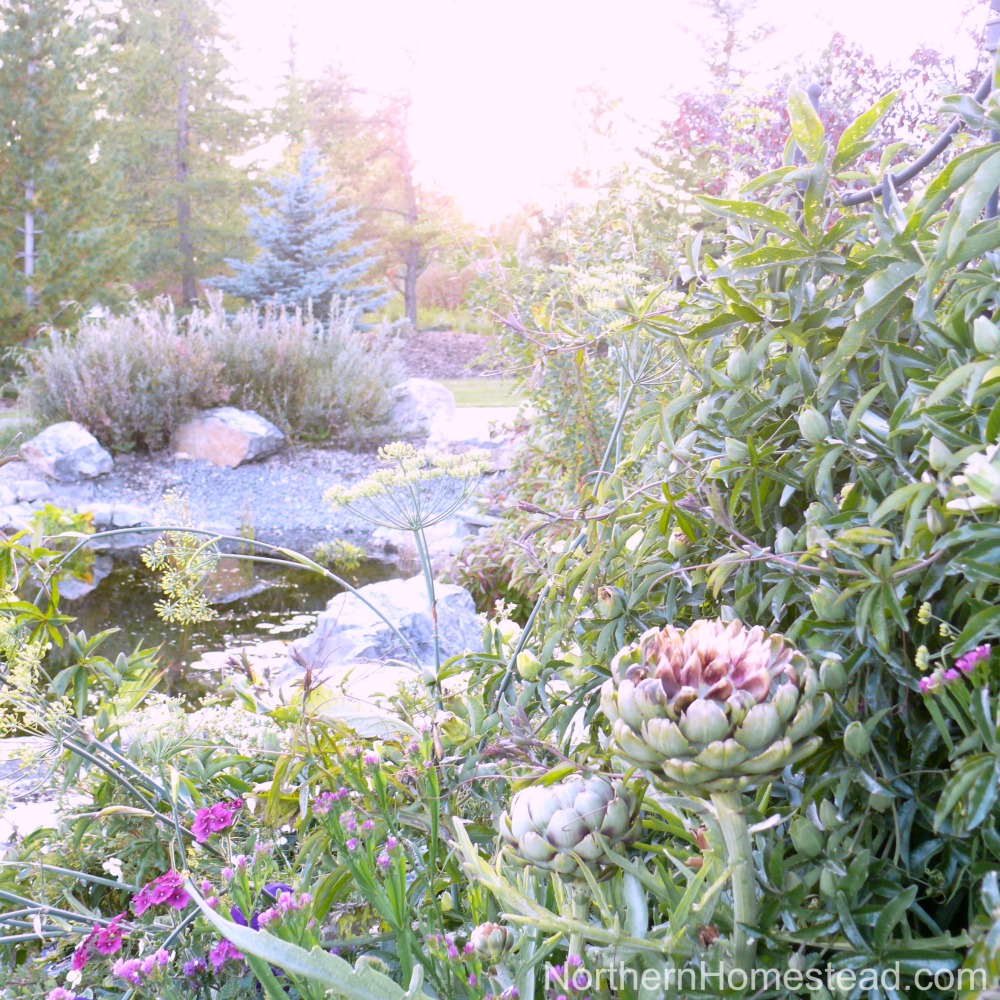
Survivalists or preppers who actively prepare for an emergency, disaster, end of the world, or the coming of zombies seem to like our blog. We are sometimes asked about prepping, or what we think about it. In our world, it would seem that everyone should be prepared. However, we do not consider ourselves survivalists or preppers, and here we share our reasons why we are not prepping and what we think is a better way.
This is a review of the original article 2 years ago. A lot has changed in our world since then. Personally, we have also grown and evolved during that time. Challenging times tend to do that to us, we either become bitter or better.
Note: we are not writing against survivalists or preppers, and there is no judgment toward what anyone is doing. We share why we do not consider ourselves as preppers and why.
Prepping comes from a place of fear
Preppers are great people, they are often resourceful, frugal, grow gardens, and develop and use great homesteading skills.
However, being prepared for any type of disaster involves being focused on the disaster. Some negative, fearful, unpredictable, and scary events.
One may argue that the outcome of a person that prepares for negative events will be very positive, and so since the end result is positive, preparing is an altogether positive thing even if it comes from a place of fear. That is a very short-sighted few, and you will see why in a moment.
There are really only two emotions, fear or love. Fear is the absence of love, just like darkness is the absence of light. And just like you can’t add darkness to darkness, only removing or blocking the light will make a room darker. So you can’t fix fear or reduce it by concentrating on fear.
To see the negatives does not cost any effort, it’s right there in front of us. It’s in the news, social media, in almost all conversations. Fear seems to be the most logical conclusion. And more often than not we don’t even realize it is fear since we have gotten so used to it.
The psychologist Carl Jung stated that “what you resist not only persists but will grow in size.” It became known as “what you resist persists”. What he meant by that is the more you resist anything in life, the more you bring it to yourself.
A Course in Miracles says it this way: “There are no idle thoughts. All thinking produces form at some level”.
Simply put, one can not concentrate on fear and produce love.
Instead of preparing for a disaster, which in itself is rooted in fear, we can enjoy what we are doing from a place of love, not fear. The actions may all be the same, but the mindset is different.
It starts with a shift in thinking.
Grow a garden
For us, it all started with a garden.
In the year 2007, we moved to Alberta, Canada for a job opportunity. Even though we both grew up on a homestead, we did not plan on growing food or living sustainably.
In those first years in Canada, money was scarce, but we had lots of time on hand. Plus an opportunity to grow a garden on a farm to provide some food for our family. Jakob still remembers becoming emotional while harvesting potatoes. It opened up something in him that he did not know before, the abundance a garden can bring.
Being often lonely and bored I started to get more serious about gardening in this cold climate. It was a steep learning curve. At that time we still did not own a speck of land, but we grew more and more each year.
I discovered a whole new hobby, a yummy hobby as I would call it. I loved it.
Soon I noticed that homegrown food had a positive impact on my health. I had been heavily relying on supplements, they helped me a little, but homegrown food did more than I ever imagined. I had the energy to go through the day without needing a nap. We were hooked, could we grow even more?
As soon as we could afford a small house we converted our lawn into a garden and later a hayfield into a garden to grow more food.
Preserve the harvest
A garden once established produces more than one can eat. Our 1/8 of an acre property, plus a community garden plot produces so much that all through the year we eat homegrown food. We are not self-sufficient, many things we eat do not grow here, but what we can grow, we do. See how much a home garden can bring here.
This is not magic, and not endless work, it is what seeds are there for. Food is free and grows abundantly for everyone who aspires to plant it with love and bring in the harvest.
Over the years we have learned to store the bounty for winter. On our blog, we share many methods of food preservation, from cold storage to high-pressure canning. See all of it here.
Our food storage is full of homegrown and homemade food, not because we are storing it for a disaster, but because we have been so blessed to the full.
It’s a lifestyle of exuberance and joy.
Eat plant food
Things became even better once we started eating plant food only. I share more about it in thoughts about the whole-food plant-based diet.
We started eating only plants purely for health reasons. Veganism never even crossed our minds. Growing up on a homestead we were introduced to butchering and using animals for food before we could even speak. I do not remember seeing any domestic animal as cute, or having any feelings toward them. They were hard work to get food on the table, nothing else.
Once we stopped eating meat, we noticed a change inside of us. A love for all creatures that we share this planet earth with arose. It was often and still is overwhelming and very beautiful.
We changed our diet and the diet changed us.
But that’s not all that happened. We soon realized that there is no need for animal food. All the hard work and 24/7 care that homesteaders provide to get it is unnecessary. Life can be so much simpler and joyous for all creatures.
To grow legumes, which are a big part of our diet, is easier than one would think, read about our experiment to grow chickpeas. The yield was about 3 cups of chickpeas green and dry from about 14 feet of a double row. That’s about 6 meals for the two of us. If we wanted a meal each week we would have to grow 10 times as much. In our case that would be 2 and a half of our raised beds.
Since we do not have room for more raised beds, we buy legumes in bulk and store them in buckets in the basement. Legumes have a long shelf life and need no care. Regularly I fill a canner with dry beans to have the beans in jars ready for use.
We are prepared without needing to be prepared.
Be at home, and in the moment
Being immigrants, we could not leave the country for about 4 years, so we had to stay home. There were lots of new places to discover right where we lived, so it did not bother us too much. Plus with a growing garden, it was convenient to be close to home all summer long.
During the summer months all other activities slowed down, and we noticed that we had even more time to concentrate on gardening and learning. Looking back, most of our deepest learnings happened during the summer months.
In the summer days are bright and long. We are awake and alert. It is the most active time of the year. In nature, everything is growing and evolving, the fruit is ripening, seeds are forming.
To be home in the summer has become our practice. It is the best time to grow a garden and to grow personally. In nature, the time to rest is in winter, not summer. We have since joined the actual cycle of nature.
Being at home, we enjoy the garden, notice the insects, hear the birds, see the growth. It helps us to shift our minds from fear and destruction to love and life.
Why are we not prepping?
We have no reason.
What if all of us grew a garden, preserved food, ate plant food, and enjoyed and took delight in being in the moment? This world would be a better place!
We invite you to subscribe to Northern Homestead and follow us on Instagram, Facebook, or Pinterest for the latest update.
More posts you might enjoy
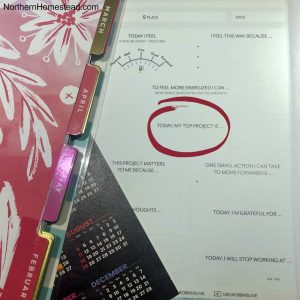
Making Progress on One Important Thing a Day
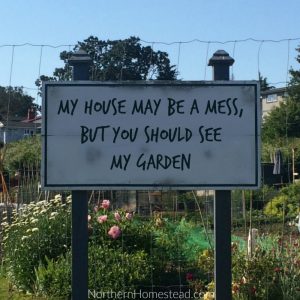
Implement the FlyLady System to Support Homesteading
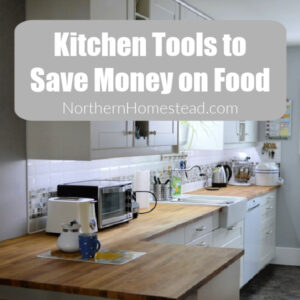
5 Kitchen Tools to Save Money on Food

DIY and Low-Cost Windows and Doors Insulation Options
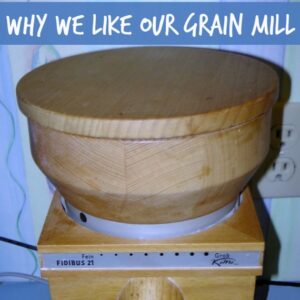
Why We Would Recommend a KoMo Fidibus Grain Mill

Do food growers need nutritional supplements?
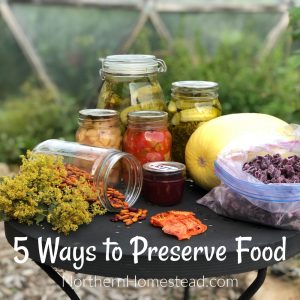
5 Ways to Preserve Vegetables, Fruits, and Herbs

Heating your Home with a Wood Stove in Town
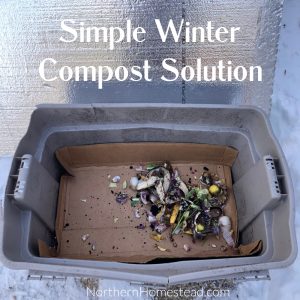
Simple Winter Compost Solution
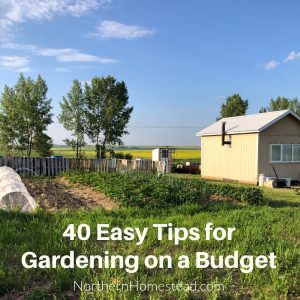


Your Article is contradictory to the prepped/survivalist. Most if the “things to do instead” right after the list of what peppers do. Are what peppers do.
We don’t have a negative thought process attached to preparing for ANYTHING that comes our way. CLEARLY, you have never had to live without power for 16 days(not prepared) or have your basement flooded so bad you had to leave your home all together.
There are a ton of reasons why 1 would be prepared “in the event of” without fear being a motivating force.
I’m sure if you polled prepared people from EVERY state in the Union, their reasons why would ALL be different. Most from a position of “We started to prep because back in (date) we had…”
Great Article though. Well thought out & written!
Thank you for your kind words. Yes, as I said the actions may all be the same, but the mindset is different. Of course, every person has their own reasons why or why not they do things. We just want to encourage ourselves and others to concentrate on the good.
Wow I think that this is fantastic the food is much healthier for you. And I thought this was very interesting thank you so much for sharing this .
You are welcome, thank you for your encouraging comment.
This was beautiful! And very much in line with how I try to live my own life. Thank you for sharing.
Greetings Anna,
I recently started receiving your postings and they are, for me, a breath of fresh air and positivity. Your article featuring your bountiful harvest is heart-warming. It truly shows an appreciation and respect for what you’ve sowed and the myriad ways to preserve your harvest.
Best of wishes,
Suzanne
Thank you, Suzanne, happy to hear this. It’s a joy to share with happy readers.
this was incredibly wise and thoughtful and reinforces how i approach my day to day life.
thanks also for referencing some reading material too. wishing you the very best in everything .
Thank you, the long winter is coming and with that more time to read and contemplate.
Great article! I think there’s a line between being adequately prepared and survivalist prepping, and I stay to the being adequately prepared side. Having enough canning for the upcoming year is reasonable, having enough rice for 25 years is over the line for me. In rural areas you get used to doing things seasonally – garden in summer, side of beef once or twice per year, fishing in the summer months, etc., so having several months of something on hand seems normal to me. My level of preparedness is also very much dictated by sale shopping as well. If peanut butter goes on sale twice per year, I buy enough until the next sale rather than paying full price every couple weeks. In Alberta we definitely get our share of natural disasters, so I think a bit of preparedness is good for that, but I don’t think I’ll ever have a zombie proof bunker.
Common sense is usually the best way to go, it looks like you have figured that out quite well.
I really appreciate this post. It would be interesting to hear your thoughts on this. Fear is a natural response, and some people are primed for fear based on past trauma (their own or their parents). But only love can cast out fear….it’s just hard to do and transform! I thought your connecting your approach with veganism was fascinating. Thank you for this, and for any comments you end up posting on this area in the years ahead.